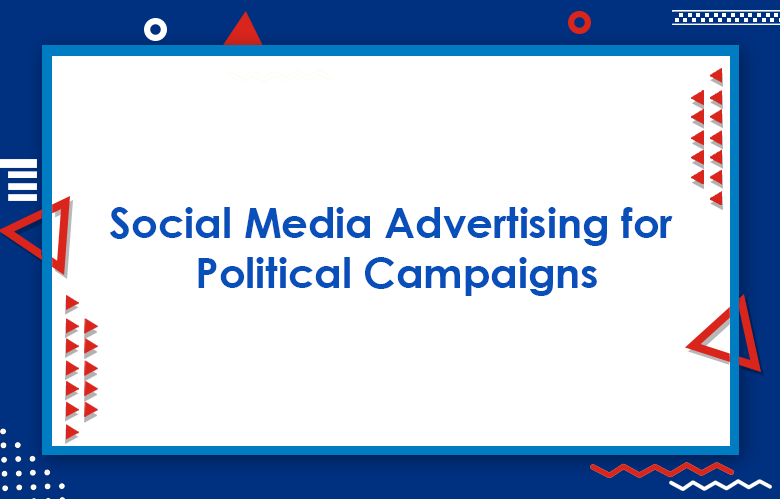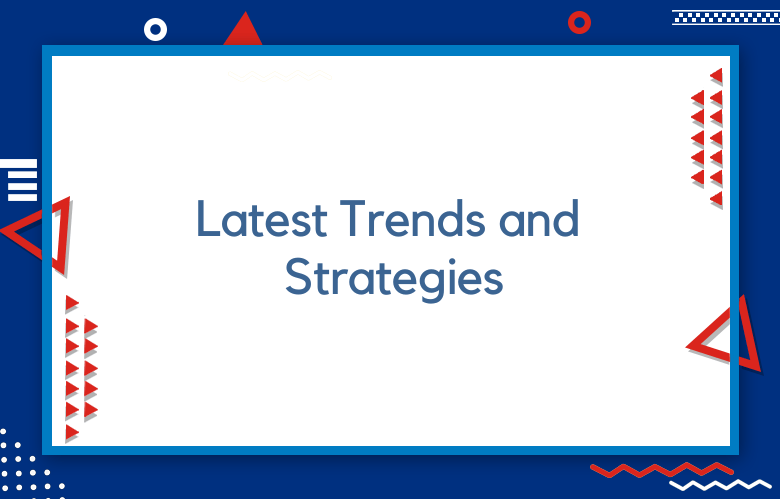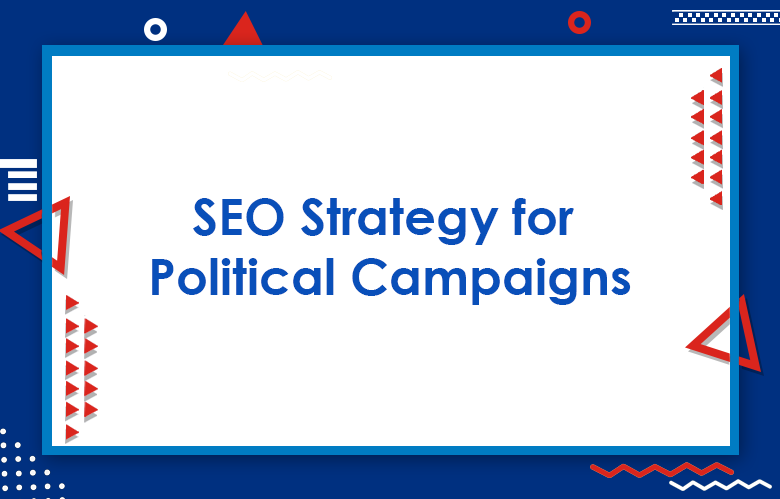Social Media Advertising for Political Campaigns: Political Advertising on Social Media Platforms

Social Media Advertising for Political Campaigns: Social media as a political tool has become imperative in this technology-driven era. A politician has appreciated the importance of social media in politics. The political scenario has changed to customer-driven, or market-using technologies have become extremely important, gaining that competitive advantage.
Political advertising today involves using various media to reach voters and encourage good voting behavior. The general public is exposed to massive doses of such campaigns during every election because of the fundamental shift of political communication from news to political advertising.
Social Media Advertising for Political Campaigns:
Political advertising is campaigning nowadays, used by political candidates to reach and influence voters. Political advertising has changed radically over the last few years. Political campaigning has gone digital.
However, political campaigning online is not simple. It involves politicians, political parties, and non-profit organizations with limited means to spend on such advertising. Politicians today use social media to recruit volunteers and raise funds, strengthening their political base. Do candidates sometimes wonder how social media helps political campaigns?
Candidates should be assured that a prosperous political and social media campaign is achievable whether they are running for any office at the national, state, or local level.
Role of Social Media in Political Campaigns
The Internet is now the essential element of current political campaigns. Communication tools such as social media platforms, emails, websites, and podcasts play a vital role by enabling faster communications through citizen movements and delivering a message to a broader audience.
Social media is beneficial for fundraising for any social cause, lobbying, community building, volunteering, and organizing. The individual candidate or any political party must plan a social media political campaign strategy to make political advertising on social media platforms highly beneficial for them.
Signifying the importance of social media in politics, many of our Indian leaders have recently relied heavily on social media and various news media channels to recruit campaign volunteers and raise campaign funds.
Internet-based activities are increasing due to social media technologies such as Twitter, Facebook, Instagram, and YouTube.These technologies have empowered politicians to enable faster communication at the citizens’ grassroots level and pass appropriate messages to a larger target audience.
Political campaigns also formulate their social websites at a low cost. They prove it to be an effective method for mobilizing voters and growing participation among various populations. Social media has successfully reached out to the young community to mobilize votes, organize, and promote action.
How to use Social Media for Political Campaigns?
Using social media for political campaigns depends on the target audience, the political party, or the candidates who want to reach out.
While using social media for politics, the party or the candidate should keep in mind that it will not only enable them to reach out for maximum voter mobilization but will also boost their efforts on social media for political advertising.
The most important thing about using social media campaigns is that before the campaign begins advertising, the movement needs to verify and authorize social media to provide greater transparency.
Recently, Google, Facebook, and Twitter have changed their rules regarding user verification, making it compulsory.
Verification of a political campaign allows social media users to identify ads dealing with politics quickly, impart knowledge regarding who paid for them, and whether the ad authorization is that of a candidate or a campaign.
Here are some ways how to use social media for political advertising.
Have the Campaign’s Website and various Social Media Accounts:
A website can achieve control over narration and create an identity for a political party, a political campaign, or its candidate. The website serves as a reference point and conveys the information as it should.
People often visit the website to gain additional information when they want to know more about something or somebody. The website makes information official and clears the position of the party or the candidate. Nowadays, we find people more on social media.
Therefore, all political parties or candidates should have social media accounts to maintain a constant presence on the Internet.
Social media sites such as Instagram, Facebook, LinkedIn, and Twitter are great for PR and can be fantastic places for publishing rich content. YouTube is an excellent medium for uploading full-length videos of rallies, public appearances, or fundraising campaigns.
Use images for social media posts:
Pictures talk more than words. A visual is often more effective than reading an essay. Social media has become increasingly visible, with image-friendly LinkedIn, Instagram, Twitter, and Facebook.
A picture added to a post may take up more space but capture the viewers’ immediate attention. The political campaigns can post their real campaign pictures, which work better than the file stock images.
Moreover, easy image editing tools, such as Pablo, are also available online to help you create that perfect picture.
Brand the political campaign:
A political campaign is now more of a brand than it used to be. Perfectly edited images of the campaign’s profile headers or party’s colors/ messages/ slogans using some perfect fonts incorporated into the page design.
These can help create a brand image on social media handles such as Facebook, Instagram, Twitter, and YouTube. Signage can also be used to print materials in the real world.
Use Videos to promote political campaigns:
Nowadays, it’s effortless to record a video from any phone. There is no excuse for not including video content in a social media account.
Creating a YouTube channel for campaign purposes is a good idea. Facebook, Twitter, and Instagram also allow video posts. It is always a better practice to directly upload a video to these social media channels rather than posting a YouTube video link into the post.
This way, people can access the video directly rather than going to a YouTube link to view it. These video posts increase exposure.
Add the social media link to the email signature:
The political campaign or the candidate should add social media links to their email and add their website for easy access to everyone who visits the website or gets their email.
Use the correct account for posting updates:
A political campaign or the party or candidate should keep personal and social media accounts separate. Also, the account should be different from the staff. Take care not to publish individual posts through the official campaign account, as it may cause embarrassment to the campaign.
An easy way out is to use different browsers for each; that way, one wouldn’t have to log out and log in to other accounts.
Social Media Advertising for Political Campaigns:
Asking for feedback and help from fans and followers:
Having a social media account with a great fan following isn’t enough. The followers should increase the fan strength and popularity of the social media account with more and more likes, comments, and shares.
The Twitter account’s followers can retweet. The followers provide feedback only if the campaign has the right call to action. Be specific, and do not let the followers assume an action they are supposed to take.
If the post is about raising funds, ask specifically for a donation, and if there is a signup form, ask the followers to register and finish the necessary signup. The role of social media in politics is evident and significant. In addition to the above, some social listening tools allow the candidate or the political campaign to follow social conversation regarding any issues.
Any relevant link is easily picked up, and online mentions can be tracked. Though online presence is essential for a political campaign, politicians must understand its value and use it as an impactful tool for interaction between voters and supporters.
These ideas will help a political campaign formulate a proper social media political campaign strategy to reap its benefit, thereby improving their chances of victory.
There are many examples of social media political campaigns in India, from the current government and the Prime Minister using social media for every event and announcement to the local leaders going social by creating posts for minor local events.
Online presence in social media is now a must for every party, candidate, and political campaign.
Conclusion:
Click here for



